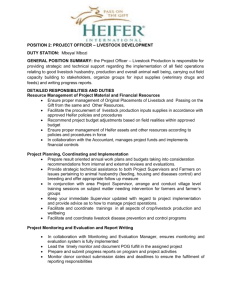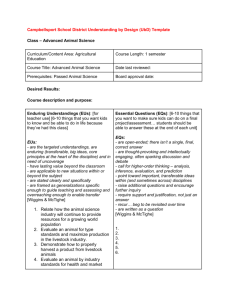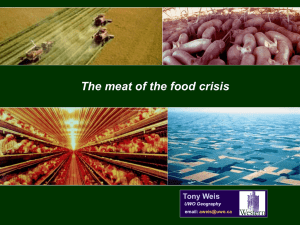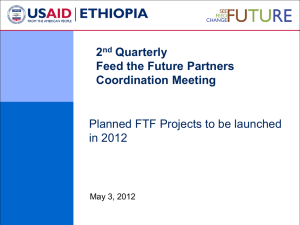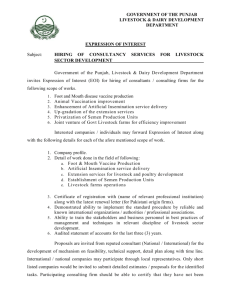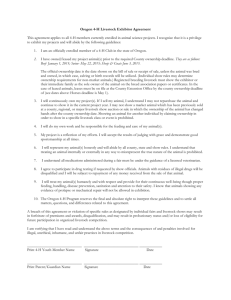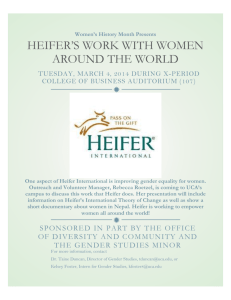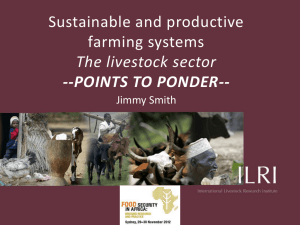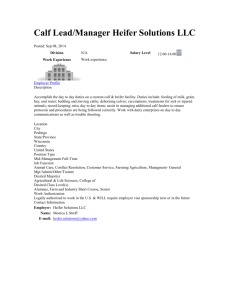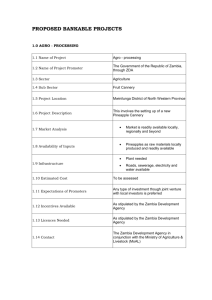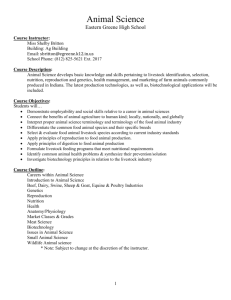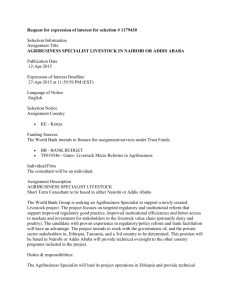Printable Form - Office of International Programs
advertisement
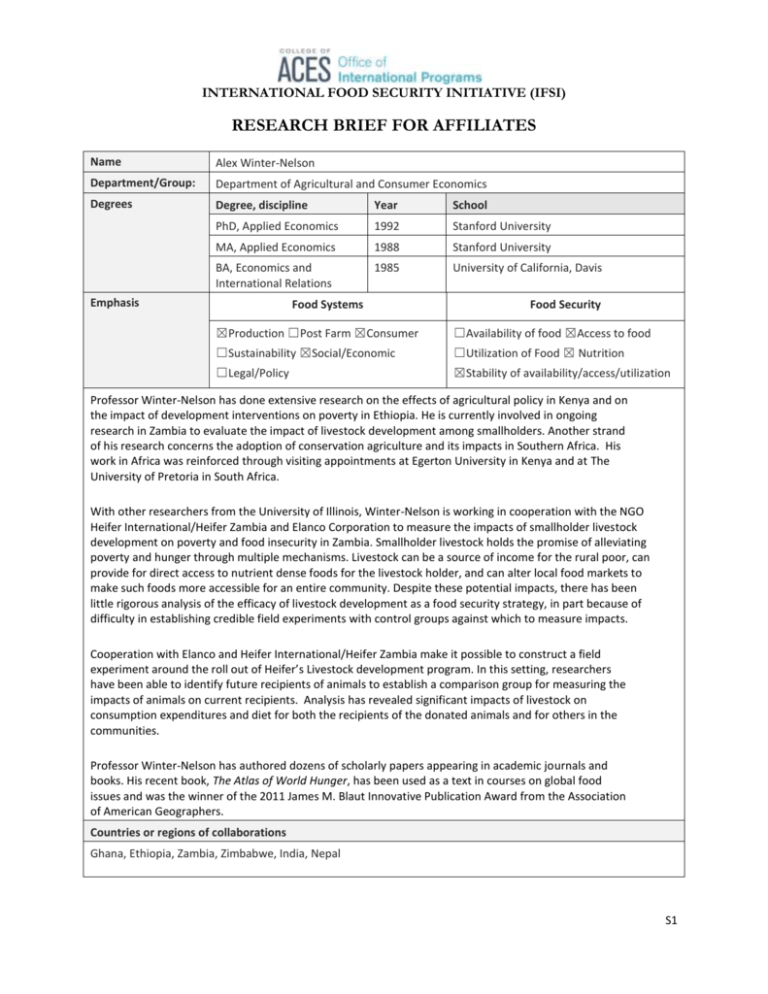
INTERNATIONAL FOOD SECURITY INITIATIVE (IFSI) RESEARCH BRIEF FOR AFFILIATES Name Alex Winter-Nelson Department/Group: Department of Agricultural and Consumer Economics Degrees Degree, discipline Year School PhD, Applied Economics 1992 Stanford University MA, Applied Economics 1988 Stanford University BA, Economics and International Relations 1985 University of California, Davis Emphasis Food Systems Food Security ☒Production ☐Post Farm ☒Consumer ☐Availability of food ☒Access to food ☐Sustainability ☒Social/Economic ☐Utilization of Food ☒ Nutrition ☐Legal/Policy ☒Stability of availability/access/utilization Professor Winter-Nelson has done extensive research on the effects of agricultural policy in Kenya and on the impact of development interventions on poverty in Ethiopia. He is currently involved in ongoing research in Zambia to evaluate the impact of livestock development among smallholders. Another strand of his research concerns the adoption of conservation agriculture and its impacts in Southern Africa. His work in Africa was reinforced through visiting appointments at Egerton University in Kenya and at The University of Pretoria in South Africa. With other researchers from the University of Illinois, Winter-Nelson is working in cooperation with the NGO Heifer International/Heifer Zambia and Elanco Corporation to measure the impacts of smallholder livestock development on poverty and food insecurity in Zambia. Smallholder livestock holds the promise of alleviating poverty and hunger through multiple mechanisms. Livestock can be a source of income for the rural poor, can provide for direct access to nutrient dense foods for the livestock holder, and can alter local food markets to make such foods more accessible for an entire community. Despite these potential impacts, there has been little rigorous analysis of the efficacy of livestock development as a food security strategy, in part because of difficulty in establishing credible field experiments with control groups against which to measure impacts. Cooperation with Elanco and Heifer International/Heifer Zambia make it possible to construct a field experiment around the roll out of Heifer’s Livestock development program. In this setting, researchers have been able to identify future recipients of animals to establish a comparison group for measuring the impacts of animals on current recipients. Analysis has revealed significant impacts of livestock on consumption expenditures and diet for both the recipients of the donated animals and for others in the communities. Professor Winter-Nelson has authored dozens of scholarly papers appearing in academic journals and books. His recent book, The Atlas of World Hunger, has been used as a text in courses on global food issues and was the winner of the 2011 James M. Blaut Innovative Publication Award from the Association of American Geographers. Countries or regions of collaborations Ghana, Ethiopia, Zambia, Zimbabwe, India, Nepal S1 INTERNATIONAL FOOD SECURITY INITIATIVE (IFSI) RESEARCH BRIEF FOR AFFILIATES Publication highlights Jodlowski, Margaret, Alex Winter-Nelson, Kathy Baylis and Peter Goldsmith, “Milk in the Data: Food Security Impacts from a Livestock Field Experiment in Zambia” World Development, under second round review. Pedzisa, Tarisayi, Alex Winter-Nelson, Kathy Baylis and Kizito Mazvimavi, “Abandonment of Conservation Agriculture by Smallholder Farmers in Zimbabwe” Journal of Sustainable Development, 8 (2015): 69-82. Liverpool, Saweda and Alex Winter-Nelson, “Social Learning and Farm Technologies in Ethiopia.” Journal of Development Studies, 48 (2012): 1501-1521. Liverpool, Saweda and Alex Winter-Nelson, “Asset versus Consumption Poverty and Poverty Dynamics in Rural Ethiopia.” Agricultural Economics, 42 (2011):221-233. S2
